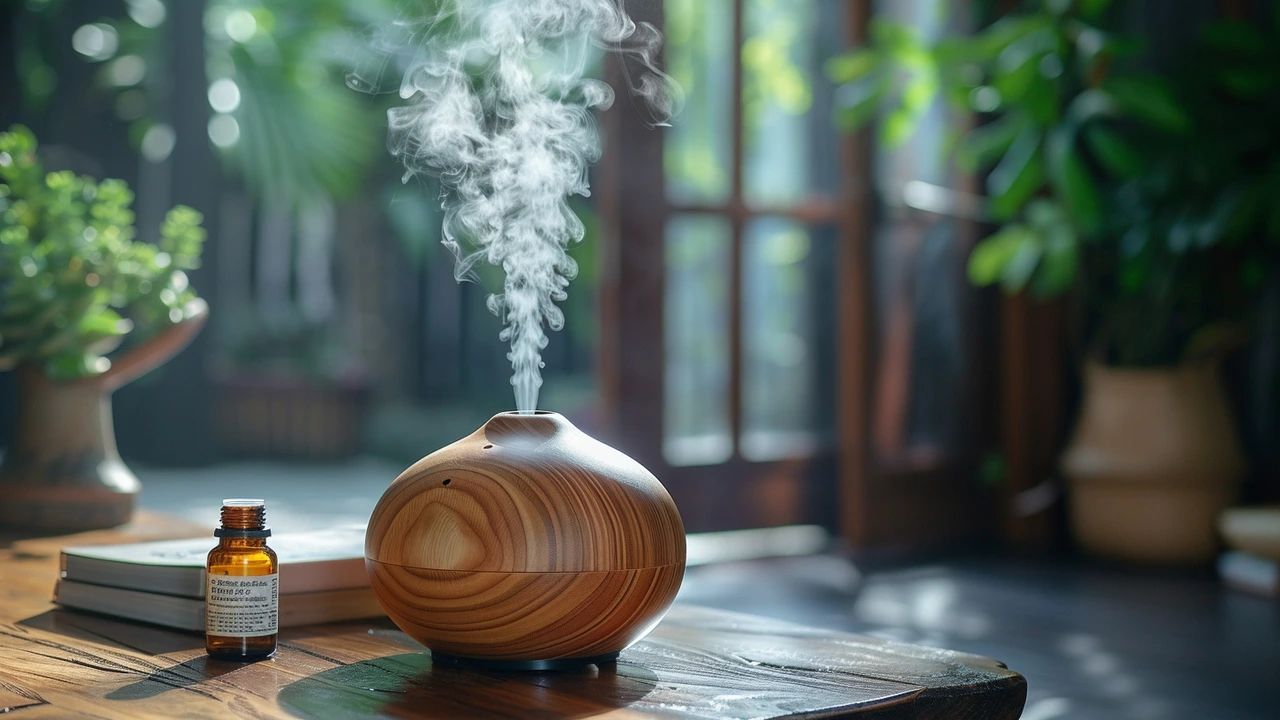Smells hit the brain faster than words. A few drops of the right oil can cut stress, help you sleep, or sharpen your focus in minutes. Aromatherapy uses those smells—usually from essential oils—to change how you feel without pills or complicated routines.
So what exactly happens? The scent travels from your nose to the limbic system, the part of the brain that controls emotions and memory. That’s why one smell can calm you or snap you awake. Aromatherapy doesn’t promise miracles, but it’s a low-effort tool you can add to stress reduction, mindfulness, or bedtime routines.
Here are the benefits people notice most: stress relief, improved sleep, better focus, fewer headaches, and a small mood boost. For example, lavender is often used to lower anxiety and help sleep. Peppermint can ease tension headaches and improve alertness. These effects are easy to test—try a short session and watch how you feel.
Using aromatherapy is simple. Put a few drops in a diffuser to scent a room. Add diluted oil to a roller bottle and carry it with you for quick calm. Try inhaling from a tissue for fast relief when you’re on the go. Add one or two drops to a warm bath for a short relaxation session. When used with slow breathing or a short mindfulness break, the effect is stronger and lasts longer.
Lavender: calming and sleep-friendly. Peppermint: wakes you up and eases headaches. Eucalyptus: clears airways and feels refreshing. Bergamot: lifts mood and reduces stress. Rosemary: helps focus and memory during work or study. Chamomile: gentle relaxation, good before bed. Start with one or two oils until you know how each affects you.
Make a simple sleep spray: mix 10 drops lavender with 2 tbsp water in a small spray bottle, shake, and mist your pillow. For stress relief, try a roll-on blend: 6 drops lavender, 3 drops bergamot, and a carrier oil in a 10 ml roller bottle. For focus, put 3 drops rosemary and 2 drops lemon in your diffuser for short bursts during work sessions.
Essential oils are potent. Always dilute before applying to skin—2% dilution is a safe start (about 12 drops per 1 ounce carrier oil). Do a patch test before first use. Avoid some oils during pregnancy and with small children; check specific guidance. Keep oils away from pets—some are toxic to cats and dogs. Buy quality oils with clear labels and store them in a cool, dark place.
Aromatherapy works best when it fits your routine. Try it with a short breathing exercise, a night-time ritual, or a quick mindful break between tasks. You’ll notice what helps and what doesn’t. Small, consistent uses often beat occasional, large doses. If you have a health condition, check with a clinician before adding essential oils to your care plan.

Hi there, fellow wellness enthusiasts! I just wrote a fantastic article about improving mental health using aromatherapy. We'll explore how certain scents can uplift your mood, reduce anxiety, and promote inner peace. Plus, I provide practical tips and techniques for getting started with aromatherapy. Join me on this incredible journey to enhancing wellness and finding tranquillity.
Read More